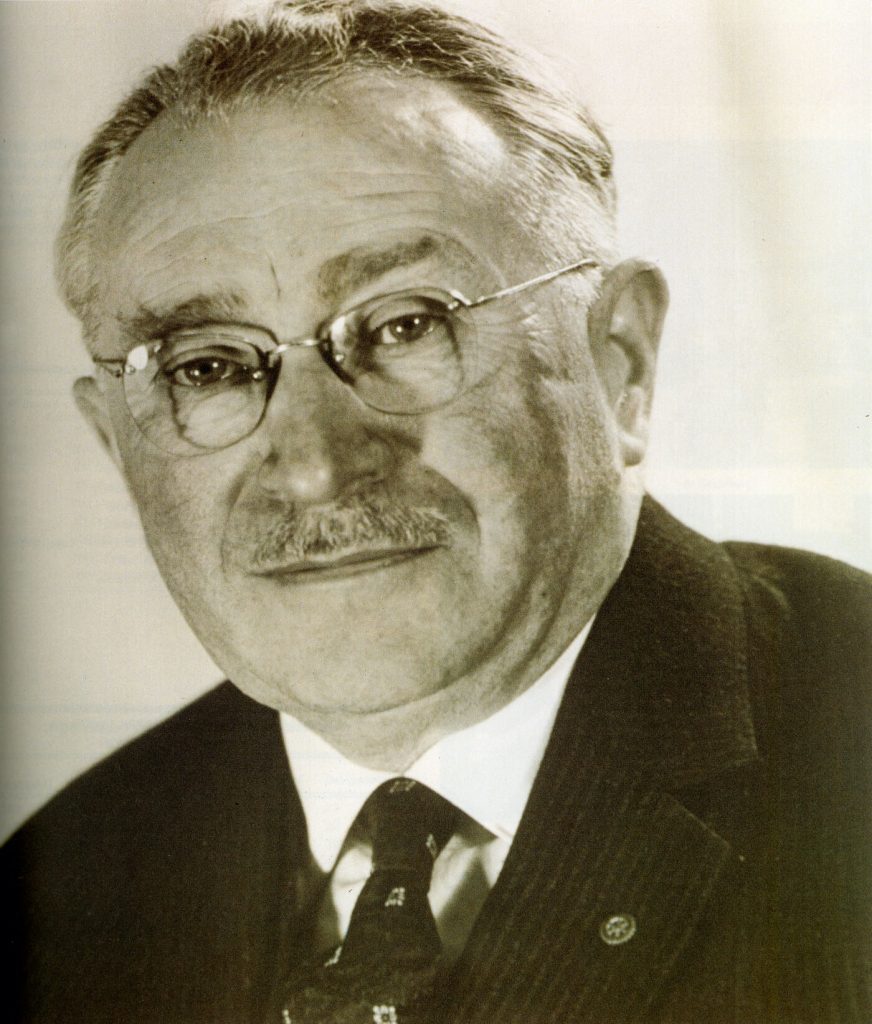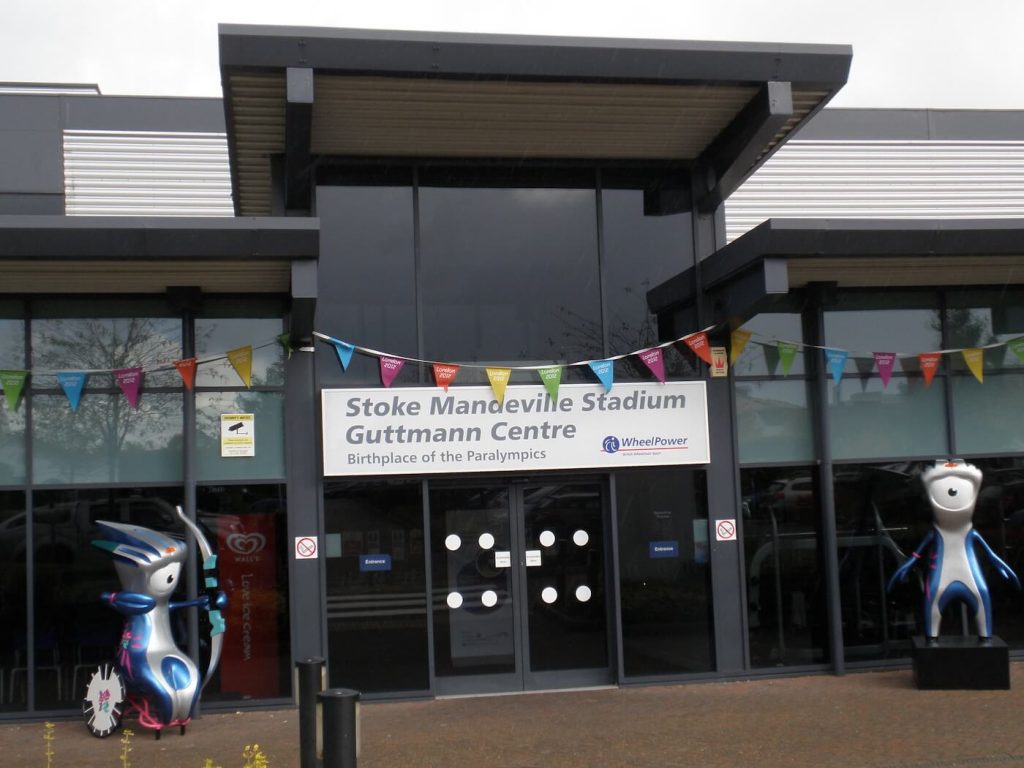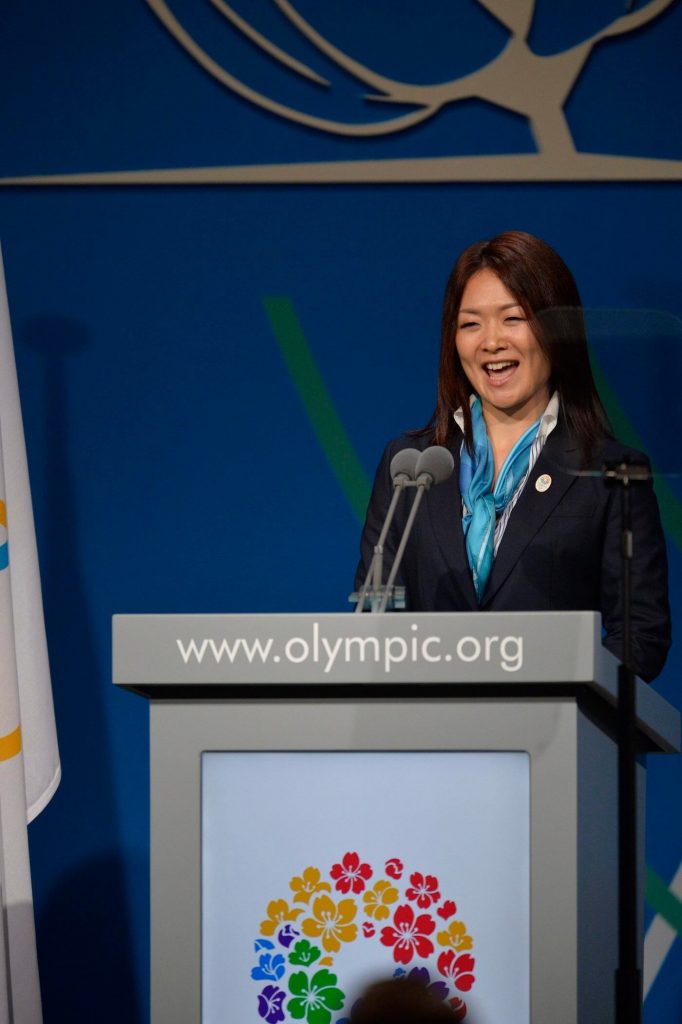Stories from Past Olympics and Paralympics - 3Birth of the Paralympics
Don’t worry about what you have lost

The Paralympic Games are the legacy of Ludwig Guttmann, who was born in Germany in 1899. While volunteering in an emergency ward after World War I, he assisted with the diagnosis and treatment of patients who were paralyzed from the waist down as a result of spinal cord injuries, and this led to his becoming a neurologist specializing in paraplegia. Dr. Guttmann was Jewish, and as Nazi persecution intensified, he and his family escaped to England in 1939, where he continued his research at Oxford University. In 1944 he was asked by the British government to establish a National Spinal Injuries Centre at Stoke Mandeville Hospital in Buckinghamshire, outside London. This was at the height of World War II, and the center was established to treat returning veterans with spinal cord injuries.
Dr. Guttmann believed that sports were a highly effective form of rehabilitation for these veterans; instead of treating the paralyzed lower half of the body, building up strength in the upper body changed the way the body moved. Sports that used balls were well suited for this. The physical functions that had been lost did not return, but the person’s physical condition could be changed by focusing on the functions that remained. More than recovery, this entailed bringing out latent abilities. Dr. Guttmann is said to have told his patients, “Don’t worry about what you have lost. Just make the most of what you have left.”

From Britain to an international sporting event
In addition to conditioning the body, sport has the element of enjoyment and recreation. You move your body while having fun and come to enjoy a game while moving your body, and team sports can also restore sociability. The original activities were punchball and rope climbing, and over time snooker, darts, and swimming were added, followed by archery, table tennis, and wheelchair polo and wheelchair basketball.
These events became increasingly competitive, leading to a major event in sports history. On July 29, 1948, a wheelchair archery competition with 16 participants was held at Stoke Mandeville Hospital. These were the first Stoke Mandeville Games, organized by Dr. Guttmann, and are considered the forerunner of today’s Paralympics. They were held on the same day as the Opening Ceremony of the 1948 London Olympics, the first to be held after the end of World War II.
The 5th Stoke Mandeville Games were held in 1952 and included wounded veterans from the Netherlands, making this the first international Stoke Mandeville Games. The number of participating countries continued to grow, and in 1960 the games were held outside Britain for the first time. Six days after the conclusion of the 1960 Rome Olympics, 400 athletes from 23 countries competed in Rome over eight days in 57 events in eight sports: archery, athletics, dartchery, snooker, swimming, table tennis, wheelchair fencing, and wheelchair basketball.
The name “Paralympic” was officially adopted, with International Olympic Committee approval, in 1985, and the 1960 Games were officially recognized as the first Paralympic Games. This was a quarter-century later, and 37 years since the first Stoke Mandeville Games, and after Dr. Guttmann passed away in 1980.

After Tokyo was named the host city for the 2020 Olympic and Paralympic Games in September 2013, The Nippon Foundation set up The Nippon Foundation Paralympic Research Group in June 2014, and this led to the establishment of The Nippon Foundation Paralympic Support Center (External site) in June 2015 to support Japanese Para athletes and Para sports leagues.
Related Link
Contact
Public Relations Team
The Nippon Foundation
- Email: cc@ps.nippon-foundation.or.jp



